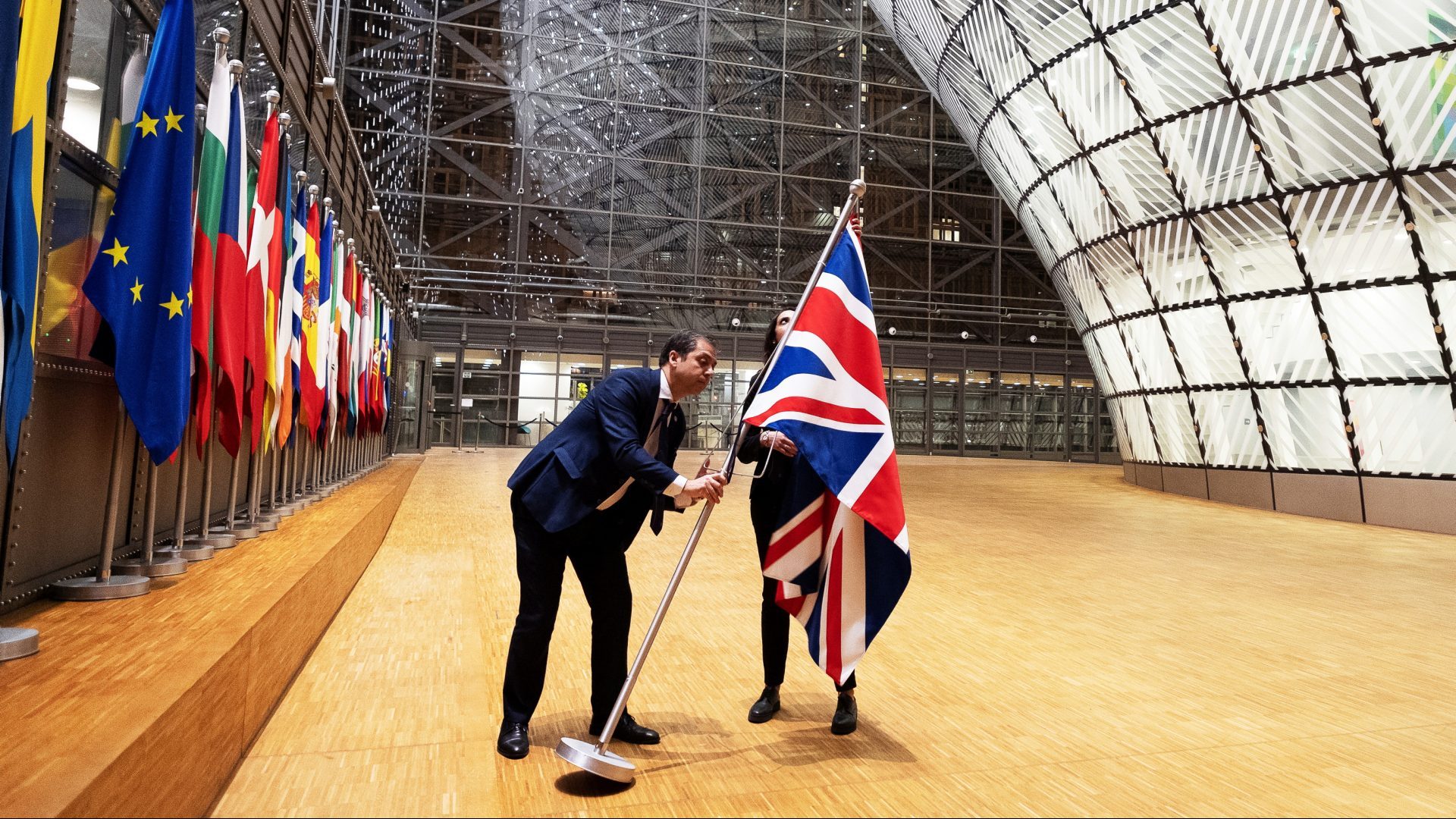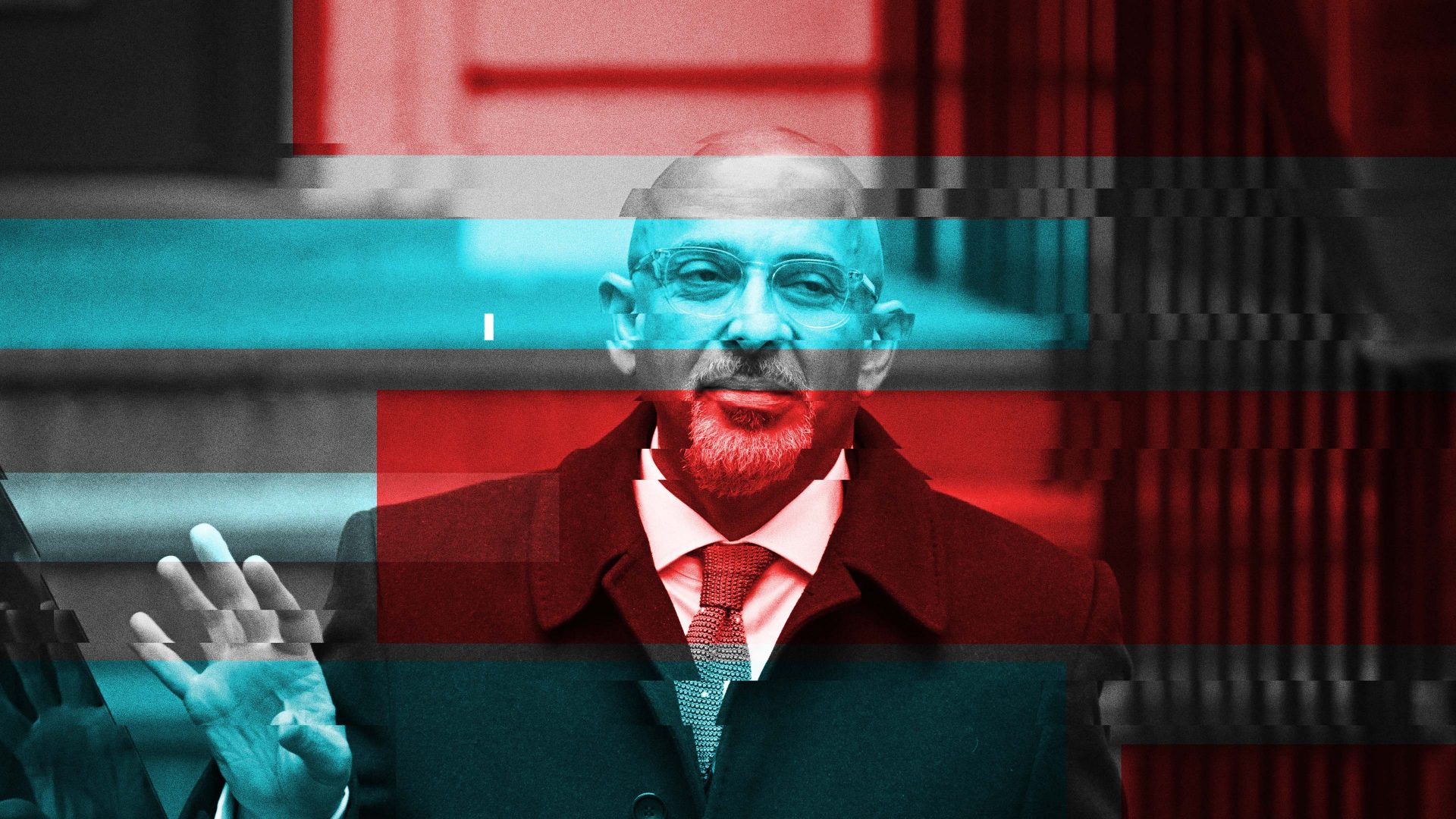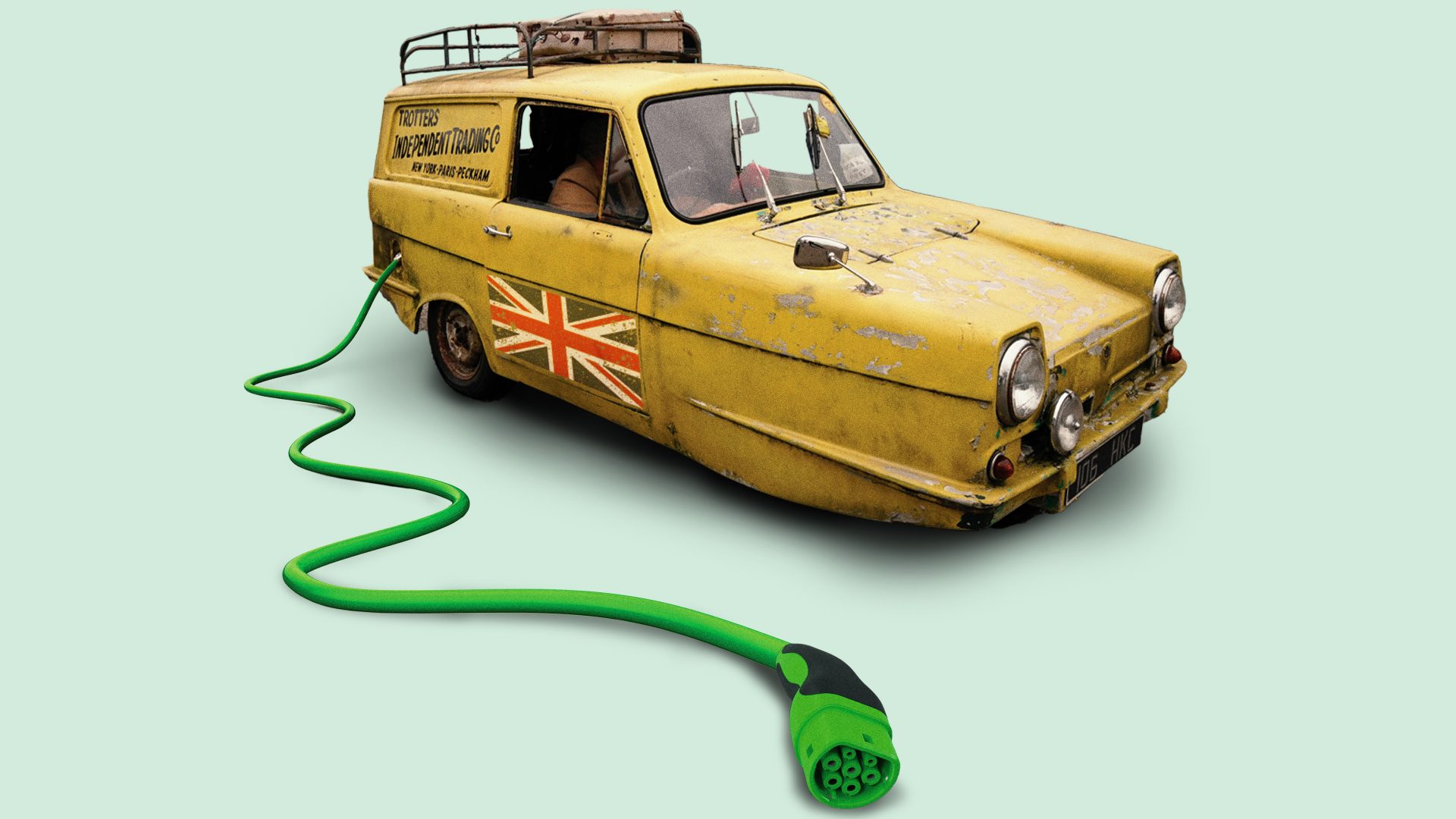Something has shifted in British political discourse in recent months. Following the humiliating political chaos of September 2022, more and more people are willing to openly state the obvious: Brexit is not working out as its proponents had hoped.
With the pandemic receding, the economic effects of Brexit can no longer be explained away by Covid. Even the government has dropped its language about sunlit uplands and Brexit benefits, as polls show only 34% of British people now think the UK was right to leave the EU, and even one in three Tory voters think Brexit has caused more problems than it has solved. Keir Starmer is now talking about getting closer to the EU single market, and Remainer hopes of rejoining are being raised. The big question now is whether the EU is interested in having the UK back.
While Brexit continues to be a major political and economic headache for the UK, for the EU it is now more of an afterthought. “From the EU’s perspective Brexit is a settled issue now,” says Ciarán O’ Driscoll, a policy and research officer for Ireland at the European Movement, a pan-European advocacy organisation. “The agreements are in place. Yes, there’s the issue with the Northern Ireland Protocol, but from the EU’s side it’s settled. In the UK things are still very unsettled, and if at whatever point down the line the UK decides it wants to rejoin, the EU would have to see that being a member is a settled issue in the UK in terms of politics, across the parties.”
In short, at this point Brexit is a problem for Britain, but it isn’t a problem for the EU. In fact, many in Brussels these days think Brexit has actually strengthened the European Union, by demonstrating its utility and removing a country that was frequently an obstacle to progress. Since the UK’s 2016 referendum, the minority support for the idea of leaving the EU has fallen in every single member state. That proportion fell from 29% to 15% in Finland, and from 23% to 13% in the Netherlands. Since the pandemic and the outbreak of the Ukraine war, the EU has moved towards deeper integration at unprecedented speed – for the first time providing arms to a non-member nation engaged in conflict, engaging in the joint purchase of vaccines and natural gas, and creating recovery funds through joint debt. All of these things would have been inconceivable seven years ago. “I really don’t think we could have agreed all these major steps over the past three years if the UK was still a member,” says one official from a southern member state. He points to David Cameron’s notorious veto in 2011 of the economic and budget cooperation necessary to respond to the debt crisis. In the end, the EU went ahead with it but had to exclude the UK.
Polls taken across EU member states show that a majority of people are supportive or neutral towards the idea of Britain returning to the EU. But it isn’t up to them – it’s up to their leaders. France blocked the UK’s application to join the European Economic Community, the predecessor to the EU, twice before relenting in 1973, predicting precisely this kind of behaviour. They doubted the UK’s commitment to ever-closer union. Those concerns have never gone away. “I don’t know what France would do if the UK applied to join again, but history may be a guide on that,” says Anthony Salamone, managing director of European Merchants, a political insights company.
However, Salamone says the narrative of the UK being the lone obstacle to ever-closer union is not entirely accurate. “There were a number of member states that hid behind the UK and allowed them to block things for them – the UK’s opposition to many aspects of European integration was useful for others,” he says. “Now those countries are trying to figure out how they manage things. Ireland and the Netherlands might have agreed with the UK on many economic issues but now they have to find other partners to work with.” It is those free-marketleaning countries that would be the most eager to have the UK back in, he says. “Historically, the Baltic states and Poland have also been very supportive of the UK, so they would be very predisposed,” he adds.
Talking to people in Brussels, the biggest things that cause them unfond memories of the UK’s time as a member aren’t the times it blocked further integration. It was the UK’s lack of engagement with the rest of Europe, something that came off as arrogance, especially when UK leaders and ministers didn’t bother to learn how the EU works or engage seriously on the issues being discussed. British prime ministers were notorious for giving post-summit press conferences in Brussels that had nothing to do with the actual content of what was discussed, such as the time in 2013 when David Cameron dedicated his press conference to a colouring book produced by the European parliament, which he claimed he had objected to at the summit (Council sources said at the time that in fact he never brought it up during the meeting). It was a cross-party problem, with Gordon Brown displaying the same level of disinterest and an instinct to bash the EU for domestic political gain as Cameron. “The EU would need to see that Westminster politics has changed,” says Salamone. “It’s been so thoroughly disconnected from the realities in the EU. Most people still don’t know how the EU works. If France sees that the UK has gone through a realignment that would make it a more normal member state, they would be more likely to support rejoining.”
O’Driscoll notes that Ireland would be one of several EU countries very eager to have the UK back in the fold. “Ireland’s economy is based on being open, and on that the UK was an ally. We’re now seeing a slight tick away from that in the EU’s trade policy as they respond to the US Inflation Reduction Act. As a smaller member state, we used to rely on the UK [to fight the free-trade battle], but now we see the EU’s response to the [Inflation Act] being driven by France. We’re starting to see the loss of that sensible voice in the room.” Ireland would obviously also be keen for the UK to rejoin because it would solve the Northern Ireland problem overnight.
But Salamone says that for both the pro-UK and UK-sceptic countries, they would need to be sure the UK was in it for the long haul.
“On the one hand, people in the EU bubble would be content with the idea of a redemption story, with the UK having left the EU, realising it didn’t work out and rejoining,” he says. “But in practical terms I can’t imagine key EU decision makers would want the UK to rejoin the EU before there was a substantial lasting change in British public opinion. You don’t want to start rejoining negotiations and then have a new government end them. There would have to be cross-party consensus.” The current 65% approval for rejoining wouldn’t be enough.
That consensus would be hard to find in the medium term, he says, because rejoining the EU would mean an end to the opt-outs the UK had before to things like the euro and Schengen. “The days of opt-outs are gone, there would be no appetite for the UK retaining what it had before. The UK would have to go through the same application process even though it was a member state before. And opt-outs are a thing you can only get if you were a member state when the policies were created, not if you’re applying to join.”
That is something the British public may have not yet fully grasped. “These opinion polls showing more British people want the UK to rejoin – what’s that decision based on?” asks O’ Driscoll. “Is it based on going back to the way it was before without the euro and without being in Schengen?” That, he says, isn’t going to happen. And support for the idea of rejoining may well fall once people understand that it would mean a commitment to join the euro.
Given all the political complications around rejoining the EU, a halfway step might be more appealing. So far, Starmer has said only that he wants to get closer to the EU single market, without explaining what he means. Many think he will elaborate only after an election, and that he may advocate creating a Switzerland-style relationship with the EU. Rishi Sunak’s team seemed to float the idea by leaking news of a Home Office report. The reaction in Brussels and Bern to the news was one of bemused déjà vu. Hadn’t this discussion already taken place several years ago, with the EU making it clear that Switzerland’s accidental system of hundreds of bilateral treaties was a problem and would never be recreated?
Whatever Labour or the Conservatives mean by a Swiss-style relationship, it would require joining the European Free Trade Area (Efta), made up of Switzerland, Liechtenstein, Norway and Iceland. But again, the question becomes, does Efta want them? Efta began life as a rival trade model to the EU, a European version of Nafta championed by the UK but then abandoned when Britain joined the EU. It was then turned into an EU-adjunct when Sweden, Finland and Austria left to join the EU in the 1990s. Could the original concept now be revived by London?
“Efta started as an alternative model to the EU because it’s based on the idea of a consensus international organisation, like most other international organisations,” explains Asdis Olafsdottir, head of communication at Efta’s headquarters in Brussels. “It’s not a transferral of power, Efta is not making decisions for the Efta states.” Being in Efta does not give a country access to the single market, however. For that, three of the countries which could not pass referendums to join the EU in the 1990s created the European Economic Area (EEA), which became Efta’s vehicle for accessing the single market.
After Swiss voters even rejected joining the EEA in the 1990s, Bern created its own separate system of bilateral accords, which effectively recreates the EEA. In order to access the EU single market, these countries need to apply EU law, accept freedom of movement and pay into the EU budget. But since they’re not EU members, they don’t get a vote on the rules they must accept – a system often called “fax democracy”.
Martin Smith, a campaigner with the group EFTA4UK, has been pushing for the UK to rejoin Efta rather than the EU. “Joining Efta on its own would be a relatively small step,” he says. “The UK would become a member state within Efta, it would make a difference to trade with those four countries but not with the EU. For that they would need to join the EEA pillar of Efta or create it through something else.”
He adds that the “something else” – similar to what Switzerland has, but in a structured single instrument that the EU could live with – might be less controversial because it could exclude financial services. “That would be a way of regaining the benefits of frictionless trade that we’ve lost but without going through the hassle and division of rejoining the EU, which would probably involve joining the euro.”
But how excited would the Efta countries be about acquiring this fifth member, given how much the UK and its interests would dwarf them in size? Oslo, Bern and Reykjavik have been tight-lipped about this subject publicly, preferring to cross that bridge if they come to it. But privately, there is concern that such a big change would disrupt the delicate compromise these countries have crafted since their citizens blocked the political establishment’s attempt to join the EU, which they admit is not a great deal, but somehow works for small countries like theirs. The Efta secretariat has a Q&A on the subject of the UK joining, but Olafsdottir says they are not working on this possibility at the moment. “It’s not up to the Efta secretariat, it’s the member states who would have to decide.”
Would they say yes? “I wouldn’t expect that EEA and Efta would be thrilled about the idea of the UK joining them,” says Salamone. “Their arrangement works well enough for them. Yes, they don’t have a say, they still have to implement and they still pay a big budget contribution, but everything works fine with these three small countries. If the UK were in it, they would become the dominant force. I’m not quite sure the EU would be interested in that either.” Although joining Efta would only require the assent of the four Efta countries, joining the EEA would require a yes from all 27 EU countries as well. And what they were willing to countenance for a few small countries in the 1990s may not be something they’re willing to consider for a large country in the new millennium.
But Smith disagrees. “The UK would be by far the largest country, larger than all the others combined. But I think the members would be OK with the idea as long as the UK is committed to [domestic] cross-party consensus on joining. They would have to have confidence that the UK wouldn’t leave if another government got in, or that they’re not using Efta as a stepping stone to then join the EU. But there’s no reason why they wouldn’t see it as the UK strengthening Efta’s bargaining weight. And for the EU countries, it would be a way to keep the UK close but without being in the decision-making process and getting in the way of further political integration like we used to.”
What’s clear is that in Brussels and all other EU capitals apart from Dublin, there is little appetite to start long negotiations over the UK joining the EEA or creating a new vehicle within Efta. The NI protocol may continue to be a headache, but for continental Europeans it is one of the last things on their minds. The effects of Brexit are a British problem, not a European one.
Dave Keating is Brussels Correspondent for France24



